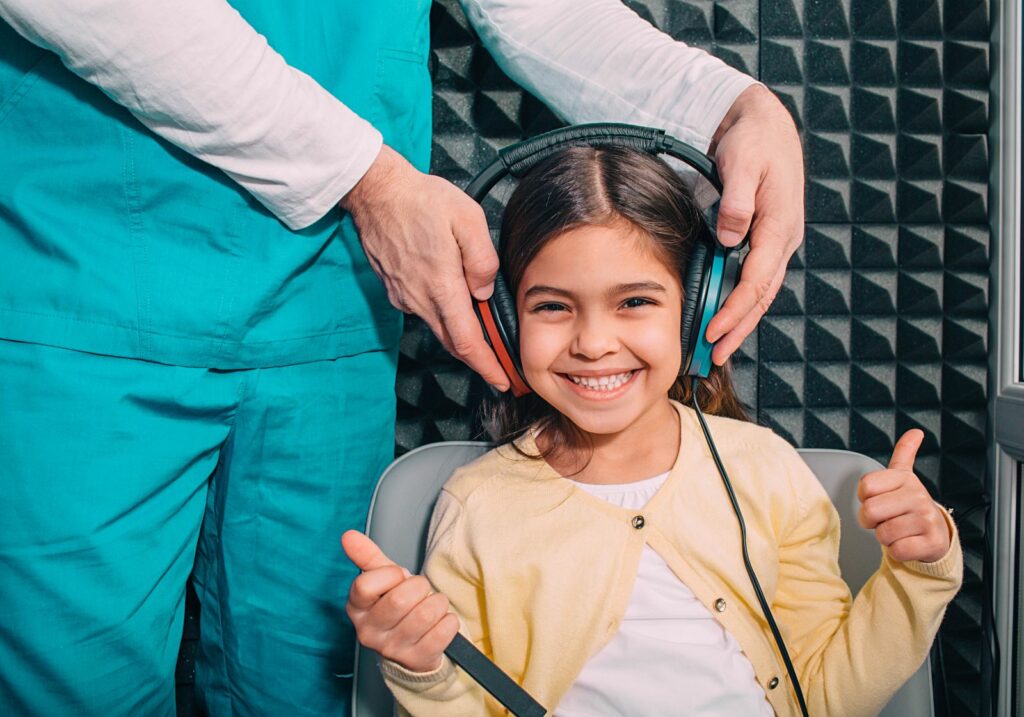Have you ever thought about how much we take hearing for granted? How it acts as a silent thread, weaving us seamlessly into social experiences and bonding us with our peers? Now, imagine the world of a child with hearing loss. While their world may be quieter, it doesn’t have to be less vibrant. As parents and caregivers, it’s crucial to remember this. We must help these kiddos create positive social experiences and foster strong peer relationships.
Building Bridges, Not Walls
One of the first steps in this process is ensuring we understand hearing loss’s impact on a child’s social development. Children with hearing loss can sometimes feel isolated or misunderstood. We get it. We see it in our hearing practice every day. But remember, we’re in this together. And with the right tools (like hearing aids!) and strategies, we can help these kids bridge the communication gap and thrive socially.
1. Create an Environment for Success
The first step? Setting the stage. Encourage your child to invite friends over for playdates. Having the home-court advantage can make a world of difference for your child. They’ll feel more comfortable and in control, helping break down any possible barriers.
2. Be Open and Honest with Others
Teach your child the importance of being open about their hearing loss. Yes, it might seem tough. But trust us, it makes a difference. Communicating their needs helps others understand how to connect with them effectively. Talk to your child’s friends and their parents, too. Explain what hearing loss means and how they can support your child. The more informed everyone is, the better the experience will be.
3. Equip Your Child with the Right Tools
In our hearing practice, we firmly believe that hearing aids can be game changers. They’re not just devices; they’re your child’s gateway to the world. They enhance sound quality, clarity, and volume, making communication and interaction much easier.
4. Promote Confidence
Fostering Confidence is critical. Please encourage your child to engage in activities they enjoy and excel at. It’s about something other than them consistently winning. It’s about them knowing they can. This can help boost their self-esteem, making it easier for them to interact with their peers and form meaningful relationships.
5. Teach Advocacy Skills
Your child’s voice is powerful. Teach them to stand up for their needs, ask for repeats if they don’t catch something, or request that people face them when speaking. These skills not only help in communication but also in building confidence and independence.
6. Foster Empathy and Understanding
Understanding and empathy – they’re two-way streets. Teach your child to be empathetic towards others facing their own challenges. This will help them make deeper connections and pave the way for others to understand your child’s hearing loss.
We’re not just saying these things because we’re a team of hearing professionals. We’re telling them because we’ve seen these strategies work. We’ve seen children with hearing loss grow, flourish, and form meaningful relationships with their peers. But remember, it’s not a one-size-fits-all scenario. Each child is unique, and what works for one might not work for another.
So, let’s start this journey together, shall we? Come visit our practice with your child. Let’s create an action plan tailored to your child’s needs. Let’s empower them, build their confidence, and watch as they blossom into the socially savvy butterflies they were always meant to be. Because every child deserves to hear the world in full color and be heard in return.
Don’t hesitate to visit us at our hearing practice, and let’s make every day count for your child.


